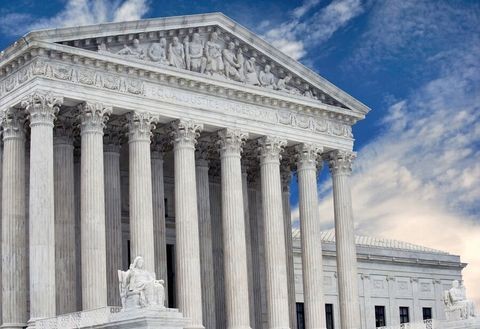False Claims Act Settlement Illustrates Value of Disclosure and Cooperation
Client Alert | 2 min read | 05.02.24
A recently-announced False Claims Act (FCA) settlement illustrates how government contractors and other FCA defendants can take advantage of a Department of Justice (DOJ) policy that rewards voluntary self-disclosure to, and subsequent cooperation with, the government.
On April 23, 2024, DOJ announced that contractor Consolidated Nuclear Security, LLC (CNS) agreed to pay $18.4 million to resolve allegations that CNS “knowingly submitted false claims” to the government based on hours recorded but not actually worked by CNS technicians under a cost-type contract with the U.S. Department of Energy (DOE). The most notable aspect of the settlement was that $16.6 million, or approximately 90%, of the settlement payment constituted restitution or “single damages.” The FCA provides for treble damages, and settlements with DOJ routinely result in a payment of double damages. But in this case, rather than applying a 2x multiplier to the single damages amount, DOJ agreed to a 1.1x multiplier.
As set forth in the settlement agreement, CNS achieved this substantial discount through application of a DOJ policy adopted in 2019 that rewards voluntary disclosure, cooperation, and remediation in FCA matters. After discovering that it had billed the government for hours that its employees had recorded but not actually worked over a six-year period under the DOE contract, CNS made a voluntary self-disclosure to the government. CNS then cooperated with the government’s investigation, and remediated by, according to CNS: (1) firing the employees who engaged in the fraudulent time-charging; (2) identifying individuals with potential knowledge of relevant information and facilitating interviews; (3) preserving relevant documents and electronic information and facilitating review by government investigators; (4) providing up-to-date information regarding the financial impact on DOE; and (5) implementing measures to prevent the possible reoccurrence of similar misconduct.
In its press release announcing the settlement with CNS, DOJ touted application of its disclosure and cooperation policy, stating: “CNS received credit in the settlement under the department’s guidelines for taking disclosure, cooperation and remediation into account in False Claims Act cases.” The settlement agreement likewise stated that “CNS has been credited in this settlement under the Department of Justice’s guidelines for taking disclosure, cooperation, and remediation into account in False Claims Act cases,” citing the policy at section 4-4.112 of the Justice Manual.
Key Takeaways
- Labor mischarging will continue to be a rich source of FCA enforcement actions, which can result in substantial financial exposure for contractors due to the FCA’s treble-damages and per-violation penalties provisions.
- Government contractors, and other potential FCA defendants, can substantially reduce their financial exposure in some circumstances by voluntarily disclosing credible evidence of FCA violations, fully cooperating with any ensuing government investigation, and taking appropriate remedial measures, in order to get full credit under the applicable DOJ policy.
Contacts
Insights
Client Alert | 3 min read | 05.15.24
On May 9, 2024, the U.S. Supreme Court issued a ruling in Warner Chappell Music Inc. et al. v. Sherman Nealy et al., Case No. 22-1078, resolving a circuit split in federal courts as to whether it is possible to recover copyright damages beyond the three-year filing statute of limitations. The court held in a 6-3 ruling that there is no time limit on monetary recovery, while leaving the three-year filing deadline intact.
Client Alert | 3 min read | 05.14.24
Client Alert | 4 min read | 05.13.24
Harmonizing AI with EEO Requirements: OFCCP’s Blueprint for Federal Contractors
Client Alert | 7 min read | 05.13.24
SEC Enforcement Actions Signal Enhanced Scrutiny Around “AI Washing”






